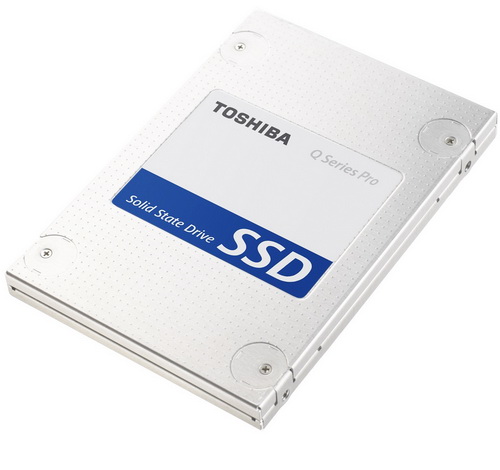INTRODUCTION

If you've been following everything related to SSDs (Solid State Drives) then you should be aware that for the past 3 years performance hasn't really changed since obviously the SATA 3 (III) standard with its maximum theoretical speed of 600MB/s has been more than enough for people unwilling to spend more for a PCIex based solution. The new SATA 3.2 standard was announced last year and according to its specs-sheet it will boost the maximum theoretical throughput for storage devices to 16Gb/s (2GB/s) since it's based on the SATA Express standard which uses up to two PCI Express 3.0 lanes. Some mainboards that make use of the new 3.2 standard have already been announced but it will take some time for it to be established and so for now SATA 3 compatible SSDs are the way to go (if you aim to win the masses). Today on our test bench we have one of the latest SSD models to hit the market the Q Series Pro 256GB by Toshiba.
Toshiba Europe GmbH Storage Peripherals Division, in Neuss, Germany, markets external HDD and SSD storage solutions aimed at consumers and retailers in Europe. Its current product range is STOR.E, and spans from external HDDs to SSD and storage upgrade kits. For over 20 years Toshiba has been developing and manufacturing hard drives used by every major brand of notebook computer.
The Q Pro line of SSDs is the successor to the quite successful Q line launched by Toshiba last year based on a Marvell controller paired with custom firmware by Toshiba which in the end gave it a maximum read speed of 552MB/s and a maximum write speed of 501MB/s. Now although both solutions use 19nm MLC Toggle NAND flash chips manufactured by Toshiba the Q Pro line uses a new controller paired with new custom firmware which is more than enough to boost speeds up to 554MB/s read and 512MB/s write. This is not really groundbreaking performance levels compared to those of the Q series but whatever improvement is welcome by us especially when the price is not affected much by it. Unfortunately we haven't had the chance of testing the Q Series in the past so we can't really compare it with the Q Series Pro but follow us as we compare it to several other SSD models in the market.

 O-Sense
O-Sense







.png)

